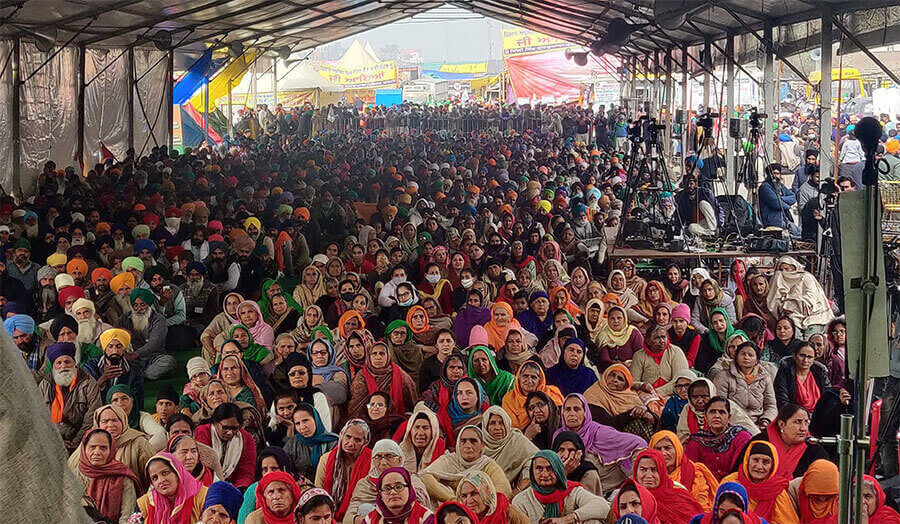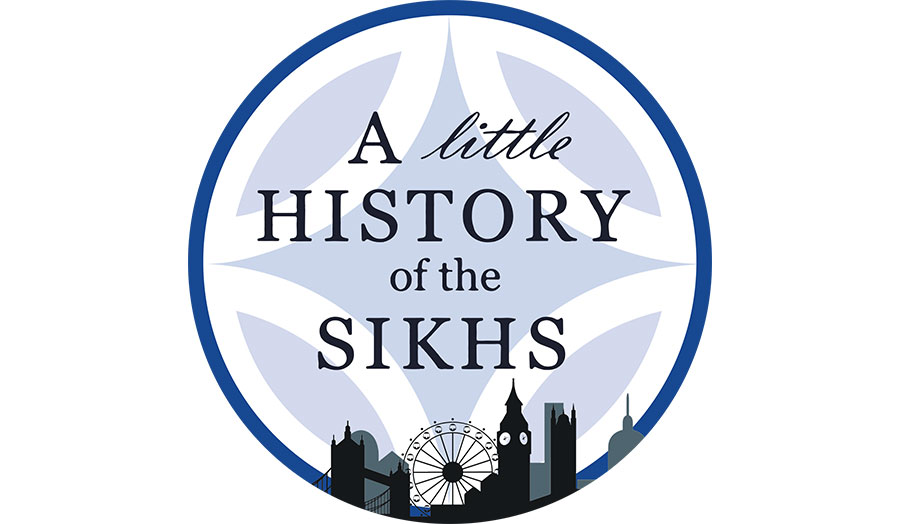This research project is led by Dr Clelia Clini, lecturer in Postcolonial Media and Culture in the School of Computing and Digital Media. It will produce the first mapping of the British Sikh artistic response to the farmers’ protest in India and will explore the significance of the protest and its impact on the diasporic community.

Project lead
This research is funded by a BA/Leverhulme Small Research Grant 2023/24
More information
Between 2020 and 2021 India saw one of the biggest mobilisations in the history of the country, as thousands of farmers staged a year-long protest against three farm bills aimed at deregulating the agriculture system. Farmers in Punjab were the first who started protesting against these bills, in July 2020, and they were soon joined by other farmers in Haryana, Uttar Pradesh, Rajasthan, Maharashtra and several other Indian states, leading to a mass mobilisation at the end of November, when unions exhorted farmers to march to Delhi under the "Dilli Chalo" slogan, on 26th November 2020. As they approached Delhi, the police stopped farmers before they could enter the capital, and in response they set up camps at the Singhu, Tikri and Ghazipur borders of the city, where they continued the protest until the government repealed the laws, in November 2021.
While the protest involved farmers from several Indian states, Sikh farmers from Punjab and Haryana played a prominent role in the movement, and their contribution sparked a strong response from Sikhs abroad. Sikhs in the diaspora played a pivotal role in turning the protest into a global movement, as they used social media to communicate with farmers as well as to spread information across diasporic locations, significantly raising the international profile of the campaign (Monteiro 2021, Thandi 2022).
As the protest unfolded, many Sikh artists in the diaspora, including the UK, spoke out in support of the movement, and contributed their art in support to the cause – their artworks often drawing explicit connections between a Sikh collective past and present experiences of solidarity and resilience.
While there is a growing body of research on the art produced in support of farmers in India, and on the contribution of the Sikh diaspora to the movement, no research so far has investigated the creative contribution to the protest from the diaspora, or the impact of the protest on diasporic communities and the places in which they live.
This project will fill this gap by producing the first map of the British Sikh response to the farmers’ protest in India and by exploring its significance and impact on the community. The research will be conducted in collaboration with the London-based heritage organisation A Little History of the Sikhs, which organises walking tours of Sikh and Anglo-Sikh histories in London and other areas of England to enhance public understanding of the intertwined nature of Sikh and British history.
The project will address the following questions:
- What is the significance of the protest of Indian farmers for British Sikhs and, more specifically, what meanings did they acquire in the diasporic context?
- What themes dominate artistic engagements with the protest, and how are they entangled with processes of identity in the diaspora?
- What impact did the protest have on the British Sikh community as well as on other communities in the UK?
- What lessons on solidarity can be learnt from the diasporic support to Indian farmers?
The project will run from 1st May 2024 to 30th September 2025. The research will adopt a qualitative interview-based methodology which will be accompanied by the textual analysis of selected creative outputs produced by British Sikh artists in support of farmers. Selected interviewees will be UK-based artists who creatively contributed to the farmers’ protest, as well as organisers of rallies in the UK.
The project will provide the first mapping of British Sikh response to the farmers’ protest in India and will help better understand the entanglements between intangible cultural heritage, diasporic activism, and social change, focusing on the role of arts in promoting transnational solidarity.
The outputs of the project will be one conference paper, one journal article, one book chapter and a creative itinerary of British Sikh solidarity and resistance, i.e., a digital map which will feature key protest sites and creative responses to the protests in Britain, which will be available on the A Little History of the Sikhs’ website. The creative itinerary will be presented at a public engagement event to be organised with A Little History of the Sikhs at London Metropolitan University.
The project is led by Dr Clelia Clini, who is a Lecturer in Postcolonial Media and Culture at London Metropolitan University. A cultural ethnographer specialising in the field of South Asian diaspora and cultural heritage, she has done extensive research on the cultural memories of the 1947 Partition of British India within South Asian diasporic communities in the UK, as well as on Indian cinema and diasporic films and literature. Her most recent publications include the co-edited collection The Cultural Industries of India, and her co-authored book chapter Moving Memories. Remembering, and Forgetting, the Partition of Bengal Between South Asia and the UK.
The research is conducted in partnership with A Little History of the Sikhs. Its founder, Rav Singh, has a strong track record of researching Sikh history in London and the UK. A Little History of the Sikhs is the only Sikh heritage organisation in the UK which specialises in the production of Sikh history and heritage tours in Britain and Europe. They also have experience of producing self-guiding maps, which can be downloaded from their website.


